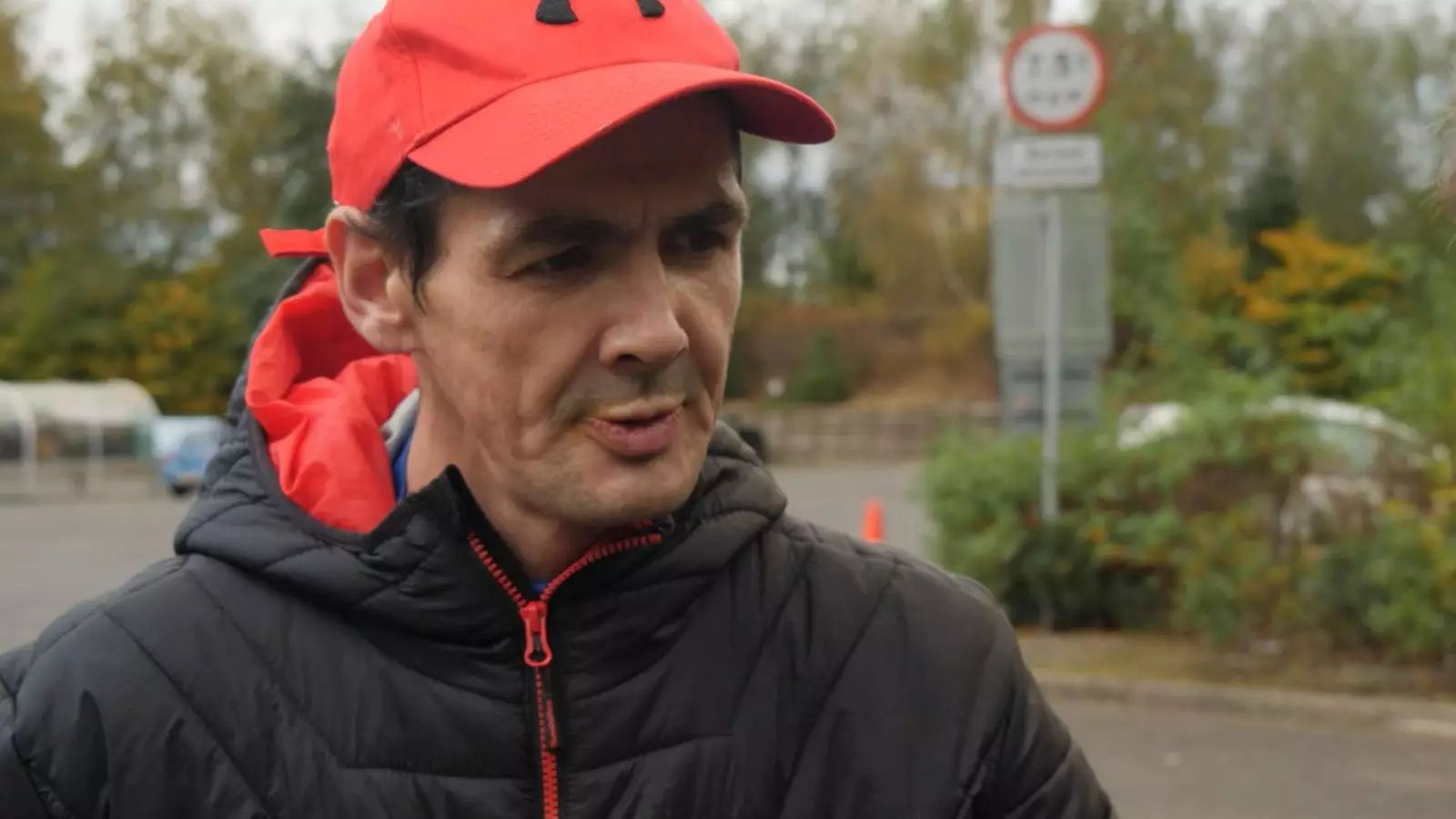In the frosty streets of East Glasgow, the chilling narrative of addiction unfolds. For many, including individuals like Chris, the morning sun brings no warmth but rather a stark reminder of their ongoing battle against drug dependency. With a syringe in hand, Chris is not merely a statistic but an emblem of despair, driven by the dark shadows of his past. It is a life that began spiraling out of control after the tragic loss of his mother in 2007—a wound that has festered into nearly two decades of drug abuse and petty crime. As he roams the neighborhood, the desperation becomes palpable; obtaining heroin has become an all-consuming priority.
Chris’s plight illustrates the daily struggles faced by many in similar circumstances. The heroin he brandishes is not just a means of escape but a lifeline, albeit a toxic one. His transactions—bragging about obtaining “20ml of heroin for £10″—highlight a grim reality that many confront in addiction-ravaged communities. The environment around Chris—the filthy makeshift drug den littered with hazardous paraphernalia—symbolizes the neglect faced by those battling substance abuse. Here, dignity is sacrificed at the altar of addiction, where desperation dictates actions devoid of self-respect.
The state of addiction in Glasgow is dire, and Chris’s story is far from unique. Scotland has alarmingly earned the dubious distinction of having the highest drug death rate in Europe. Statistics from the National Records of Scotland paint a harrowing picture: over 1,170 lives lost due to drug misuse in a single year, a significant increase from the previous one. Opioids like heroin were implicated in a staggering 80% of these fatalities. Glasgow stands at the epicenter of this crisis, where the question of how to provide support and reduce harm becomes paramount.
The local government is attempting to confront this epidemic through innovative, albeit controversial, approaches. A new facility designed to provide a safer space for drug consumption is set to open, aiming to reduce the health risks associated with illegal drug use. This initiative is more than a mere healthcare measure; it represents a radical shift in how authorities are responding to addiction. However, the road to implementation has been fraught with skepticism and debate.
Since its inception, the concept of supervised drug consumption rooms in Glasgow has stirred a complicated dialogue among policymakers, health professionals, and community members. Questions of efficacy, ethics, and funding abound. How much will this comprehensive approach cost? The Scottish government has earmarked up to £2.3 million annually for testing the model’s success, a hefty investment amidst budget cuts elsewhere. Those in favor argue that similar facilities in European cities have shown promise in reducing fatalities and engaging users in recovery services. Critics, however, worry that this could send a misleading message about the safety of drug use, potentially inviting more issues rather than alleviating them.
Chris himself is skeptical about whether these new measures will benefit individuals like him. When asked if he feels the initiative may be a trap, he expresses a lack of trust in the authorities, suggesting that many in his situation feel beleaguered by the system rather than supported. There is a palpable fear that despite good intentions, bureaucratic complications and deeply-rooted societal stigma may tether any positive outcomes that the facility could achieve.
For those entrenched in the cycle of addiction, often it feels too late for intervention. Chris’s candid admissions about the potential finality of his drug use reflect not only his internal struggle but also a broader societal crisis. When asked if he fears that his next hit could be his last, his response—”To be honest mate, that would be a blessing”—reveals a heartbreaking resignation to his fate. It’s clear that for Chris and others like him, the desperation outweighs the fear, and the desire for relief has eclipsed the instinct for self-preservation.
In the steel-hearted landscape of Glasgow, the challenge of combating addiction is not merely about providing facilities but also involves rebuilding trust, understanding individual stories, and addressing underlying social issues. It is essential to remember that every statistic represents a life—a struggle worth acknowledging and a battle worth fighting. Only through comprehensive strategies that incorporate healthcare, social services, and community engagement can we hope to provide a more hopeful narrative for individuals lost in the throes of addiction.


Leave a Reply